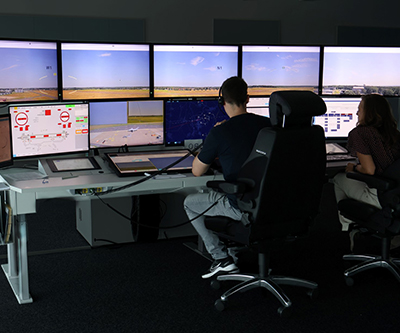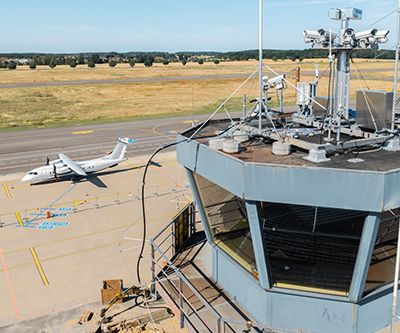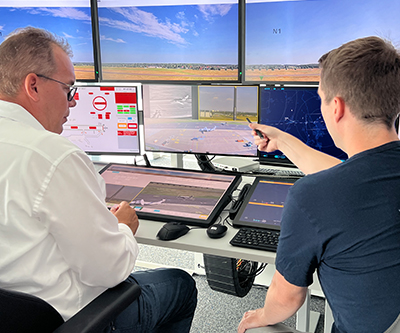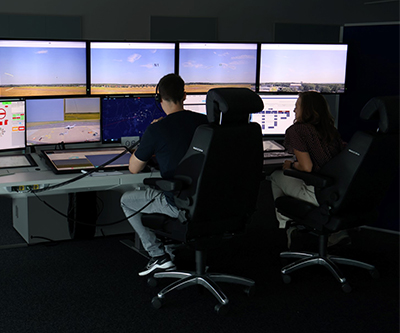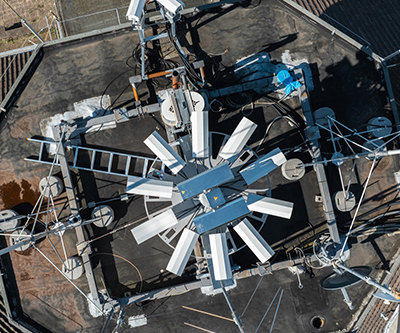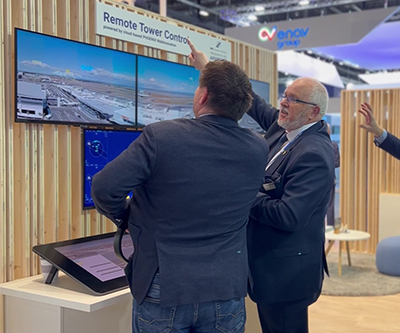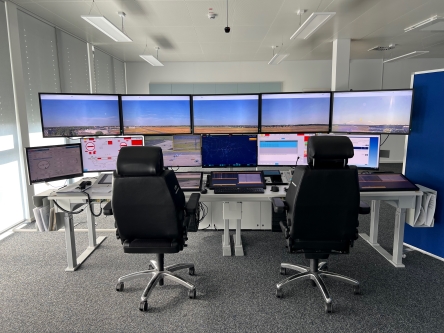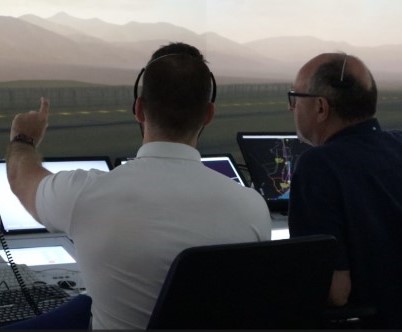The project is not completed with the commissioning of a remote or virtual tower solution. Now it is a matter of conducting the post implementation phase and having possible fallback scenarios ready. Have the set goals been achieved, have any additional requirements for the system arisen during the subsequent operational tests or is there a need for changes? These are important questions that must be answered consistently to ensure a stable and beneficial implementation in the long term. If further airports are to be integrated, a thorough lessons-learned analysis is also important. DAS benefits methodically and in terms of content from numerous project experiences.
Remote Tower Solutions
Remote Tower Solutions
Cutting-edge technology meets operational excellence
Innovation is reshaping the future of Air Traffic Management. At DFS Aviation Services, we are pioneering the integration of remote tower solutions to transform the aviation landscape. Remote Tower Control enables safe, efficient, and flexible air traffic control from a distance, offering airports the ability to optimise operations while reducing infrastructure costs. By embracing remote tower capabilities, we are driving the evolution of air traffic management, empowering airports with scalable, cutting-edge solutions to meet the demands of the modern aviation world.

We support the customer from early strategy inception until implementation and later operations. As certified ANSP with experience in RTC we can assist in projects as an advisor for experienced guidance or take over the role as full-service provider including the technical infrastructure realisation.
Dr. Ing. Veit Voges
ATM Solutions Manager
Remote Tower Solutions
Projects
Project Reference
Construction & Operation of the second Remote Tower Control-Center in Germany
Construction of the Remote Tower Control (RTC) Center Lower Saxony
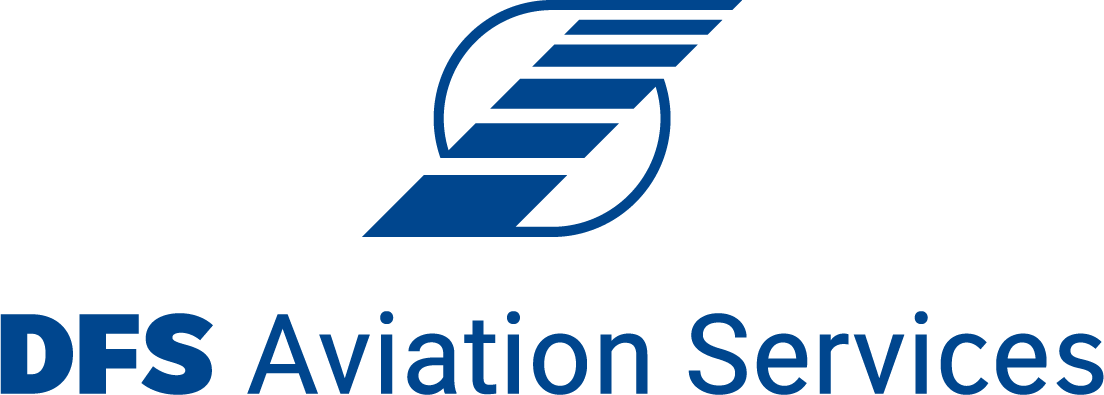
Niedersachsen, Germany
Construction of a Remote Tower Control (RTC) Center in Braunschweig with Emden & Braunschweig-Wolfsburg as first airports to be connected to the RTC Center. There is the potential to integrate up to 4 additional airports in the future. The control center is scheduled to go into operation at the Braunschweig site in 2024 and will be the second RTC Center in Germany.
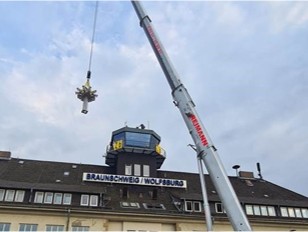
© DFS Aviation Services
Project Reference
Validation project
FREQUENTIS DFS AEROSENSE to install validation system for a virtual tower at Munich Airport
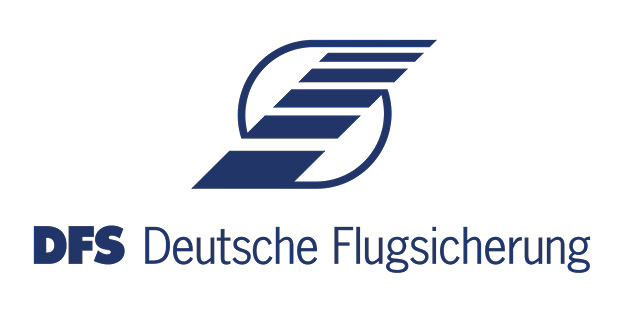
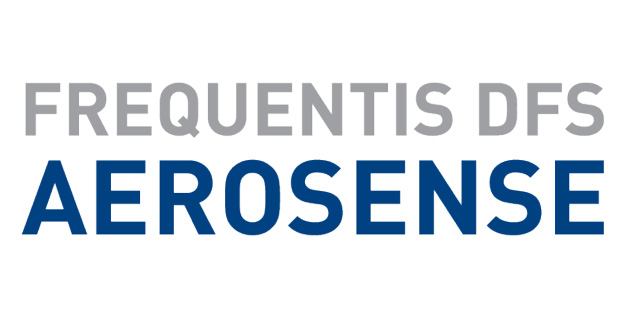
Germany
2024 the DAS joint venture FREQUENTIS DFS AEROSENSE was awarded the contract to supply a validation system for a virtual tower at Munich Airport.
In an initial project phase, the potential and suitability of the virtual tower for larger airports such as Munich will be determined and validated from both an operational and technical perspective.
Subsequently, specific use cases can be defined, for example, setting up a virtual tower as an interim system during the renovation of the control tower at Munich Airport required in the coming years. The technical and the operational validations will be carried out in 2025.
The working environment of the virtual tower is housed at the DFS branch in Munich. The 360-degree panorama cameras and the pan-tilt-zoom (PTZ) cameras are mounted on the existing control tower as part of the project. The 4K cameras transmit the information to high-resolution screens in the DFS branch, serving as the best possible substitute for the view from the tower itself.
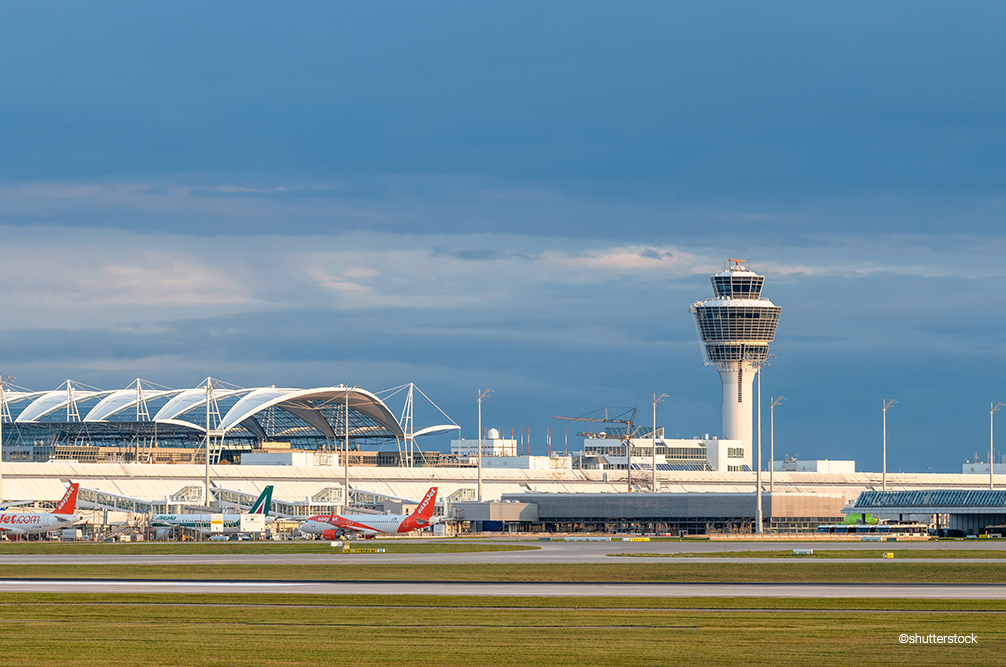
© DFS Deutsche Flugsicherung GmbH
Project Reference
Remote Tower Solutions: Operational Concepts, Workplace Design, Safety Assessment, Training and Transition, Change Management
Digital Apron Services Lima
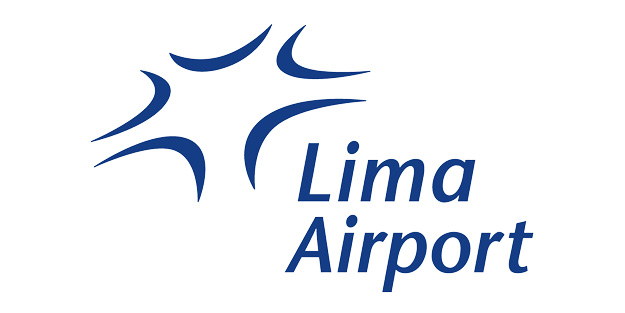
Lima
Successfully implemented a remote tower operation including advanced systems as well as a CONOPS for digital apron control for the newly built terminal 2.
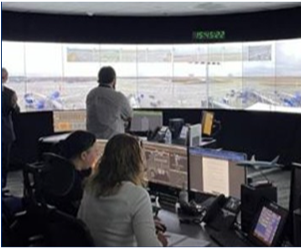
© DFS Aviation Services
DFS Group experience
Remote Tower Solutions: Strategy and CBA, Operational Concepts, Workplace Design, Safety Assessment, Certification Process, Training and Transition, Change Management
Remote Tower Centre Leipzig to control 3 airports from remote
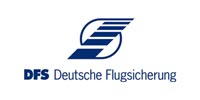
Leipzig, Germany
DFS Deutsche Flugsicherung and Frequentis developed an advanced remote tower solution for the three international airports of Saarbrücken, Erfurt and Dresden to be serviced from the first Remote Tower Control-Center of Germany in Leipzig.
The project comprises the entire scope of Remote Towers: from determination of the needs to approval of the solution by the national supervisory authority. In the first phase, already accomplished, the Remote Tower Center Leipzig was to be established and air traffic control services for Saarbrücken airport would be provided. In this phase, the contract was awarded (2015), validations happened (2015/16), the center was operated in shadow mode (2016), final acceptance was received (2017), and finally went live (2018). The solution is certified for operation by the German regulator, provides 100% continuous operation, and so far can handle up to 7 concurrent movements (Saarbrücken airport handles ~ 15.000 movements/year, with ~40% of them being VFR).
In the second phase, already accomplished, the DFS tower of Erfurt was integrated into the Remote Tower Center Leipzig in 2022.
in the third, currently ongoing phase, the DFS tower of Dresden will be integrated too.
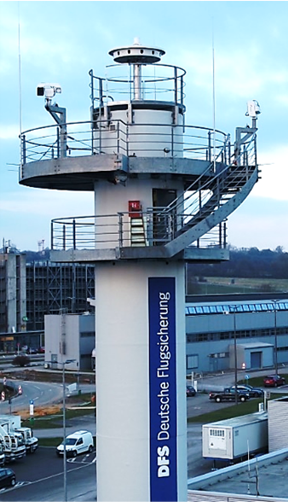
© DFS Deutsche Flugsicherung GmbH
Project Reference
Feasibility Study & Cost Benefit Analysis
Feasibility Study for Oro Navigacija, Lithuania
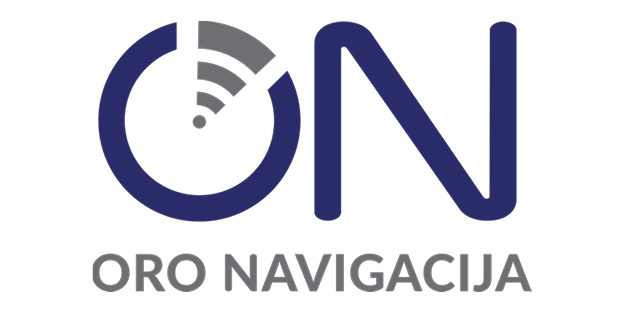
Lithuania
Assessment of feasibility of Remote Tower solutions for the four airports of Vilnius, Kaunas, Palanga and Šiauliai. The outcome enabled ON to make an informed decision about the later realisation of the envisioned RTC solution and the necessary concepts.
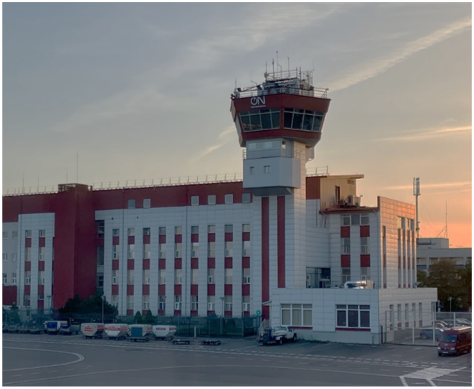
© Oro Navigacija
Contact us today
Privacy Notice
When you contact us via the email link provided above, any data you submit (e.g., your email address and the content of your message) will be used solely for the purpose of processing your inquiry. Your data will not be shared with third parties and will be deleted once the communication is completed, unless legal retention requirements apply. Please note that data transmission via email may occur without encryption, which can pose security risks. For confidential information, we recommend using secure communication channels. For more details, please refer to our Privacy Policy.


